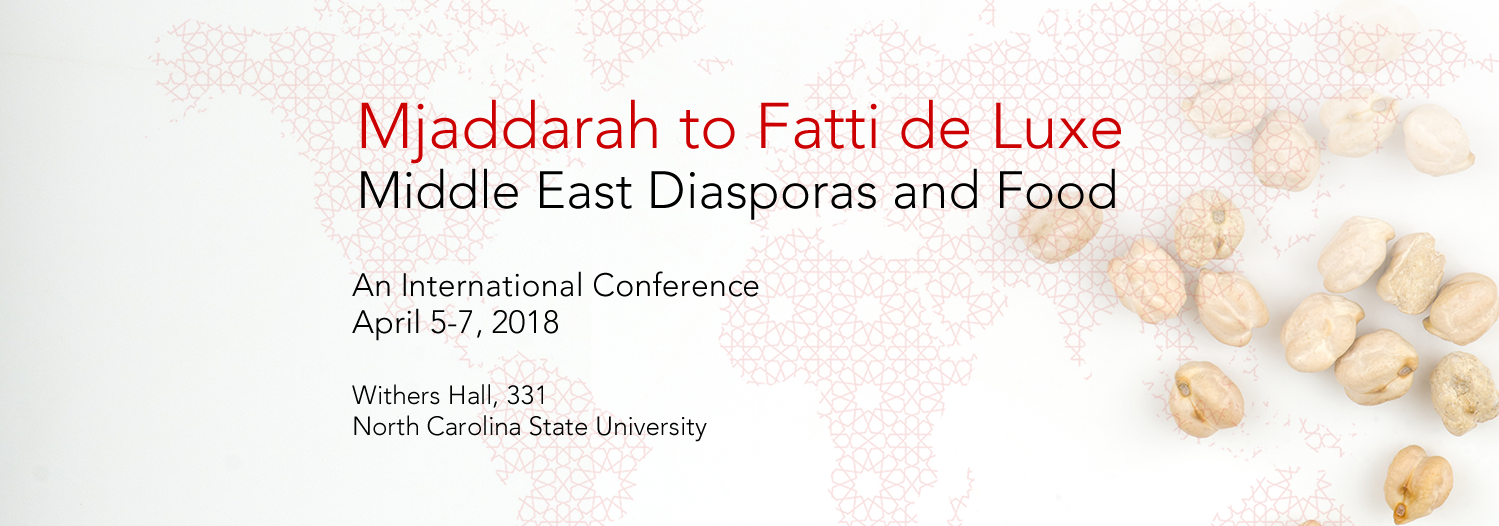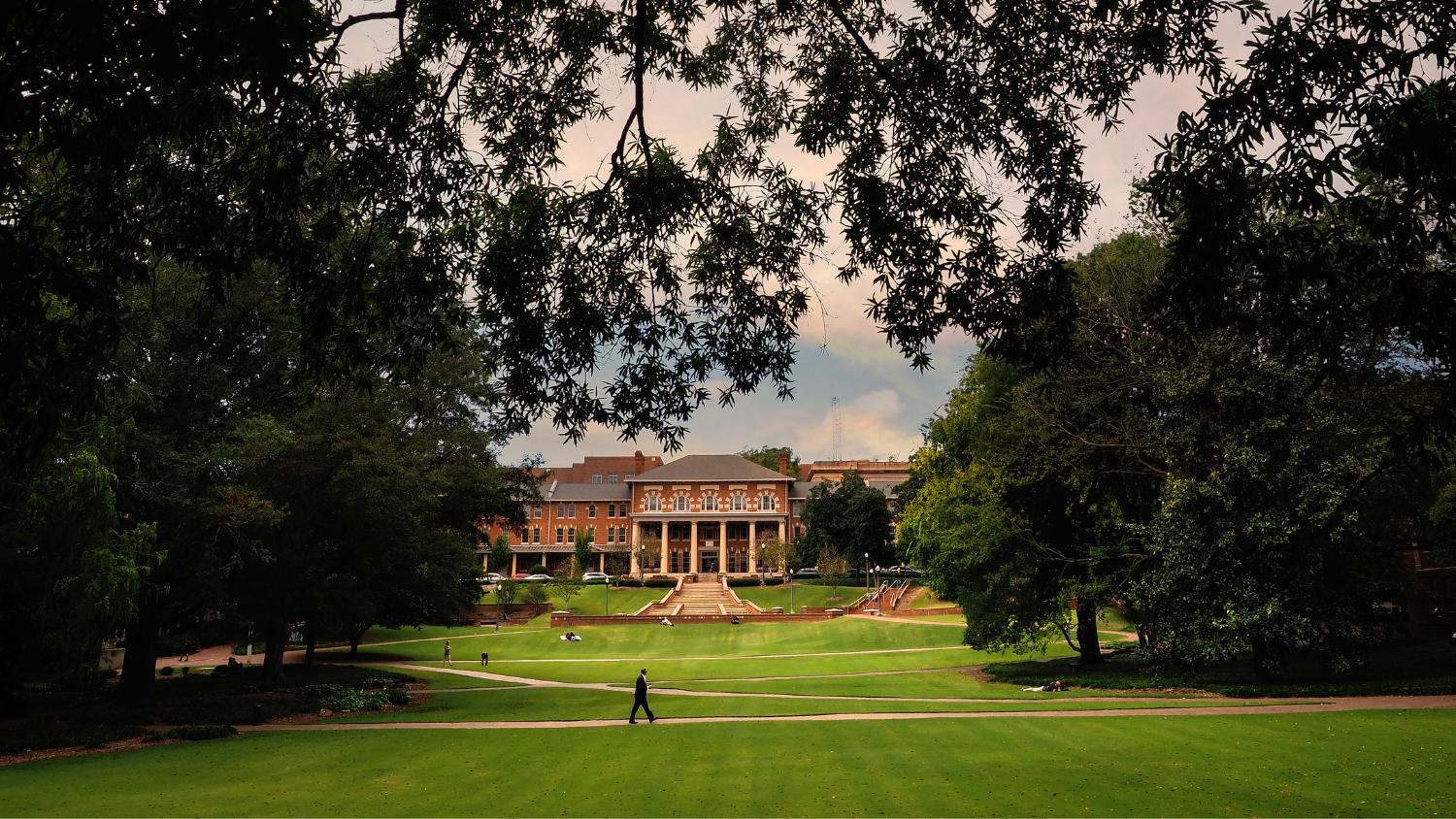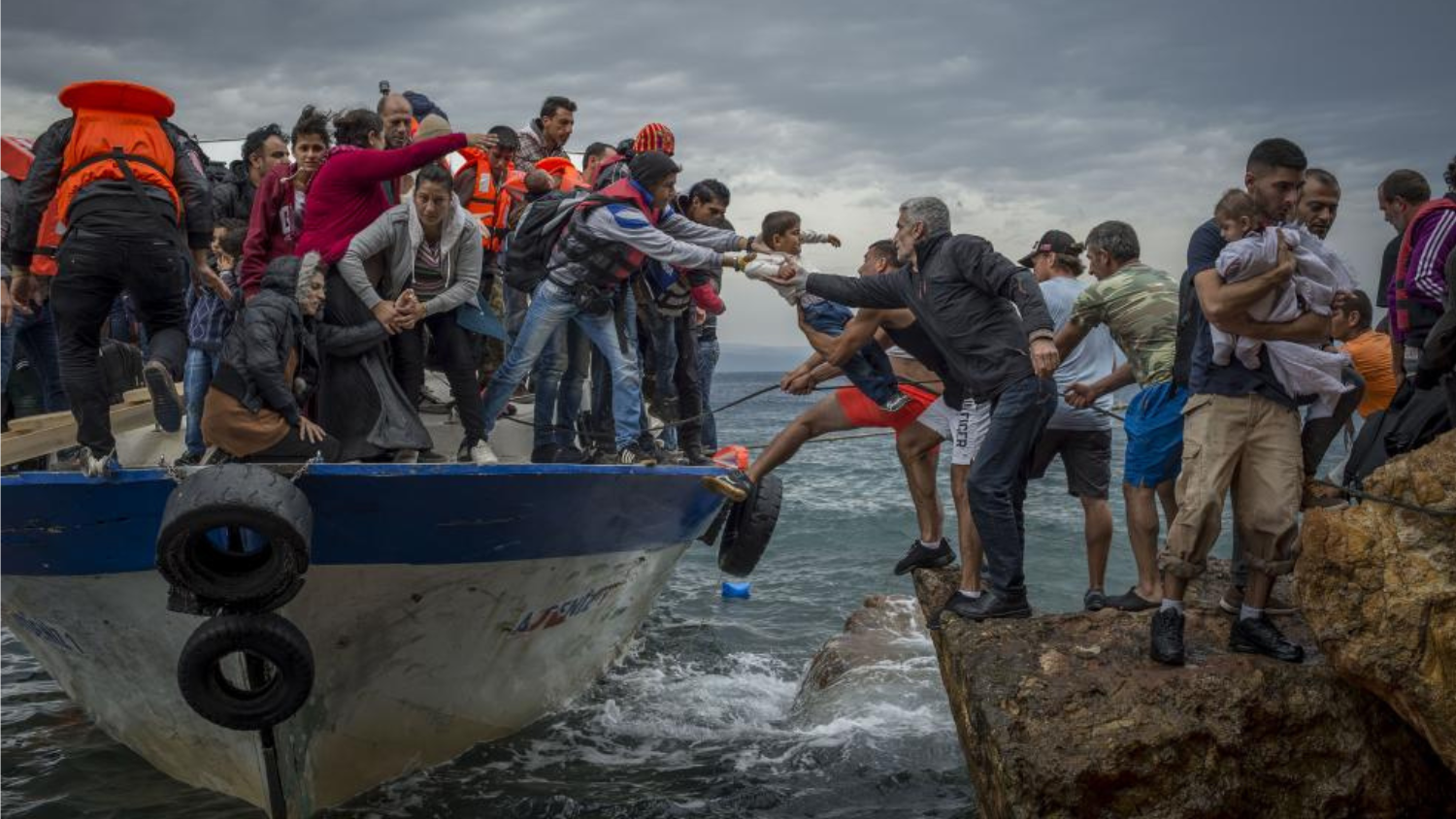The Moise A. Khayrallah Center for Lebanese Diaspora Studies (NC State University) and Center for Regional Food Studies (University of Arizona) will host an international conference—titled From “Mjaddarah” to “Fatti de Luxe:” Food and Middle Eastern Diasporas —at North Carolina State University (Raleigh, North Carolina, USA) on April 5-7, 2018. This conference, is partially funded by Empire Eats.

Middle Eastern cuisines seem to have been suspended outside time in popular imagination and culture. The reality is quite the opposite. Since the earliest days of Middle Eastern diasporas to the Americas (1880s- 1940s), cuisines that originated in the cities and villages of the Eastern Mediterranean have undergone spectacular transformations in their evolution both within the Middle East and beyond – in Argentina, Australia, Canada, Mexico and the U.S. At the same time, distance, new social and natural ecologies, nostalgia, longing and post-traumatic stress have reshuffled the role of food in Middle Eastern identity(ies). The social contexts of these cuisines – in terms of their significance in memory, oral histories, intergenerational transmission of cultural identities and tourist promotion—have also shifted or diversified over the decades.
These issues are in ways similar for every refugee and immigrant group, but they are especially poignant during the centennial anniversary of Middle Eastern diasporas that shaped the “home”: region and the world. Yet the way in which these issues have shaped the experience of Middle Eastern immigrants has still not been fully explored. Now, as popular interest in Middle Eastern food has increased to the point of rendering it into a globalized cuisine, and at a time when concomitant scholarly research is growing around this topic, there is a compelling need to delve deeper into the meanings and transformations of Middle Eastern food. This conference seeks to facilitate and advance this emerging conversation in two ways. First, we seek to unpack the power dynamics embedded in, and generated by, cultural and religious productions, economic relations and political negotiations centered on discourses about food and culinary culture. We also aim to investigate the ways that food and associated cultural expressions have morphed and diversified around Middle Eastern Diaspora across time and space.
Conference Program
Friday, April 6
8-8:45 a.m. – Coffee Break
8:45-9 a.m. – Opening Remarks: Akram Khater, Director of the Khayrallah Center
9-11 a.m. – Food and Constructed Identities
- Ari Ariel (University of Iowa), Yemeni Foodways in Israel: The Twoness of Middle Eastern Jews
- Nicholas Bascuñan-Wiley (Northwestern University), Sumud and Food: Remembering Palestine through Cuisine in Chile
- Graham Cornwell (Georgetown University), Sipping Sultan Stateside: Moroccan Mint Tea as a Global Commodity
- Persis Karim (San Francisco State University), Pomegranates, Khoresh, and Kuku: The Power of Food in the American Iranian Diaspora
11-11:30 a.m. – Coffee Break
11:30 a.m. -1:30 p.m. – Food, Migration and History
- Michael Ferguson (Concordia University), Towards a History of African Foodways in Late Ottoman Izmir
- Sara Pekow (City University of New York), The Table: Domesticity, Food and Women’s Labor in Syria during the French Mandate
- Graham Pitts (North Carolina State University), Ksara’s Bakhos Affair: Environment and Commercial Viticulture in Lebanon
- Jeffrey Reger (Georgetown University), Diets, Trade, and Food in Palestine Before and During World War I: the urban/rural divide and class-differentiated impacts of the blockade and famine
1:30-2:30 p.m. – Lunch
2:30-3:30 p.m. – Keynote Address: Dr. Gary Nabhan
6-8 p.m. – Dinner and talk by Diana Abu-Jaber; Sitti Restaurant
Saturday, April 7
8:30-9 a.m. – Coffee Break
9-11 a.m. – Food and the Diasporic Imaginary
- Jennifer Dueck (University of Manitoba), Arab Foods and Farmers in the Canadian Prairies
- Anny Gaul (Georgetown University), “My tayta always smelled like bread:” oral histories and embodied knowledge in the Arab world
- Harry Kashdan (University of Michigan), Ottolenghi and His Others
- Pauline Homsi Vinson (Diablo Valley College), Cross-Cultural Food Memoirs and Encounters with Otherness: Teaching Diana Abu-Jaber’s The Language of Baklava
11-11:30 a.m. – Coffee Break
11:30 a.m. -1:30 p.m. – “Authenticity” and Food
- Leila Hudson (University of Arizona), ”They Gave Us Cheese Sandwiches:” Foodways of war and flight
- Robert L. Nelson (University of Michigan, Dearborn), From Arabic to Halal: (Un)Marking Arabness in Dearborn’s Food Industry
- Matthew Stiffler (Arab American National Museum), Yalla Eat! Negotiating Culinary Tourism in an Arab American Enclave
1:30-2:30 p.m. – Lunch Break
2:30-4:30 p.m. – Panel of Food Writers and Chefs
- Diana Abu-Jaber
- Maureen Abood
- Samar Farah-Fitzgerald
- Barbara Massad
4:30-5 p.m. – Concluding Remarks: Gary Nabhan, Director The Center for Regional Food Studies
6:30-8:30 p.m. – Dinner and talk by Barbara Massad; Neo Monde Restaurant
- Categories:



